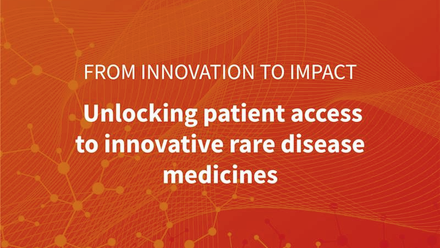BIA calls on government to support an attractive UK commercial environment for medicines
The UK BioIndustry Association (BIA) has today published a report calling for the next Voluntary Pricing and Access Scheme (VPAS) to build on the spirit of partnership between government and the life sciences industry seen during the COVID-19 pandemic.
Making VPAS fit for the future: the BIA vision, which has been developed with Oxygen Strategy, identifies the risk of the UK losing its status as a first launch market for new medicines following a period of post-Brexit political uncertainty and the unprecedented rebate rate for pharmaceutical companies in the current voluntary scheme.
In setting out its vision for making VPAS fit for the future, BIA is calling for a reset between government and industry to deliver both taxpayer value and a fair return for innovators. The call is one of several recommendations outlined in this report, presented to the Minster of State for Health and Social Care, Will Quince MP in March 2023 at a meeting with a delegation of BIA member companies.
Commenting on the report’s launch, Steve Bates OBE, CEO of BIA said:
“The UK faces a stark choice – to be a welcoming market for innovative global industries that create value for the health system, or a commercial environment solely focused on cost saving, resulting in declining life science investment and reduced access to the next generation of innovative treatments for NHS patients.”
Key recommendations
1. Financial controls should be more predictable, equitable and competitive:
- It should be acknowledged that the rebate was never meant to set a long-term precedent and that industry should not shoulder all the financial risk
- Any future financial control mechanism must be a single-digit, stable, predictable rate that is competitive with comparable markets
- The allowable growth rate for any VPAS cap should be in line with wider healthcare spending increase
2. VPAS should be a mutually beneficial partnership that realises value for both parties:
- VPAS negotiations should be conducted in the spirit of collaboration to deliver genuine and binding ‘quid quo pro’ benefits
- This requires acknowledgement from ministers that the UK industry has genuine and legitimate concerns.
- A shift is needed in DHSC and HM Treasury thinking to consider medicines spending as an investment, not just a cost if future iterations of VPAS are to deliver mutual value
3. Health technology assessment methods should be genuinely reviewed:
- It should be acknowledged that the fundamental measure of medicines’ value has not been updated for over 20 years
- Measurable commitments should be adopted to address the UK’s below-average use of medicines
- VPAS should be seen as the primary policy to ensure taxpayer value; Arm’s Length Bodies should not impose measures that cause net prices to fall below levels deemed cost effective by HTA bodies.
Note to editors
- Read Making VPAS fit for the future: the BIA vision
- Negotiations between the Government and the Association of British Pharmaceutical Industries (ABPI) for the 2024 VPAS are currently underway






